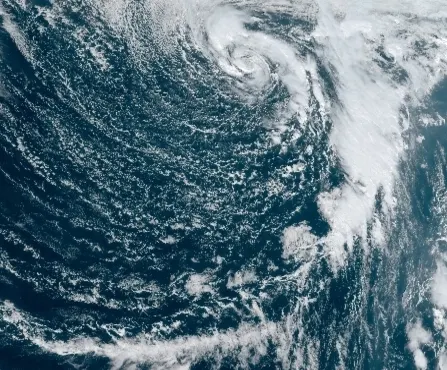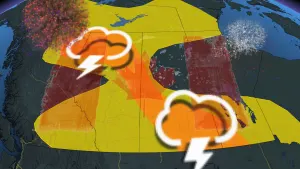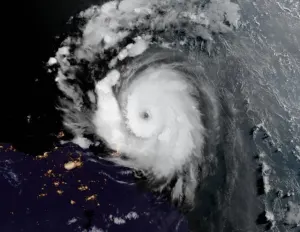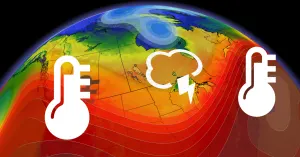
Wanda marks end of the Atlantic named storms, so what’s next?
With Wanda here, the alphabet on the Atlantic's primary names list has reached the end and the hurricane season still has several weeks (give or take) to go, so where do we turn to for the 22nd alias, and beyond?
With a month left in the Atlantic hurricane season, the main roster of names has now been scratched off. So, what is the next step?
Before we get into that, the latest and last entry on the primary alphabetical list of Atlantic named storms in 2021 is Wanda, which came to fruition at the end of October. The storm itself isn't particularly newsworthy since it isn't expected to have a long shelf life and it poses no threat to land.
SEE ALSO: Hurricane season is heating up again. What happens when we run out of names?

The storm that has taken on the Wanda name is actually the remnants of the recent powerful nor'easter that slammed the U.S. Northeast and clipped the Maritimes.
Hurricane season usually runs from June 1 to Nov. 30, though there is some flexibility on either side of those dates.
Now that the 21st named storm has completed the alphabet on the main list, and the hurricane season is down to its final few weeks (give or take), where do we turn to for the 22nd alias, and beyond?
WHAT'S NEXT?
In the past, forecasters switched to the alternate Greek alphabet, starting with Alpha and working their way through. The first time that happened was in 2005, with 28 storms total, six of them assigned Greek names. The last, Zeta, actually ended up lingering for a few days into 2006.
In 2020, a total of 30 named storms barrelled across the Atlantic basin, with eight receiving Greek monikers. That's where the Greek name system, likely intended to be a little-used overflow, began to break down.
Not to mention the World Meteorological Organization (WMO) has a history of retiring the names of storms that cause significant damage and death. In 2020, three storms were tossed: Laura, Eta, and Iota.

So using the Greek alphabet won't be the case this year.
Because the letters of a given alphabet don't tend to have readily available alternates in the same language, the WMO announced earlier this year that it would simply draw up a list of alternate Latin-based names going forward, ending the use of the Greek alphabet after only its second season of use.
With considerable time left on the season's clock, a 22nd named storm is more than likely and will be given the name Adria, followed by and so forth from there (if needed).
"We have an approved list of six more auxiliary names. Adria is next up, and maybe we could get to Foster before the season wraps up," says Kevin MacKay, a meteorologist at The Weather Network.
For 2022 and beyond, this kind of overflow may become more common.
With files from Daniel Martins.
Thumbnail courtesy of NOAA.
Follow Nathan Howes on Twitter.










